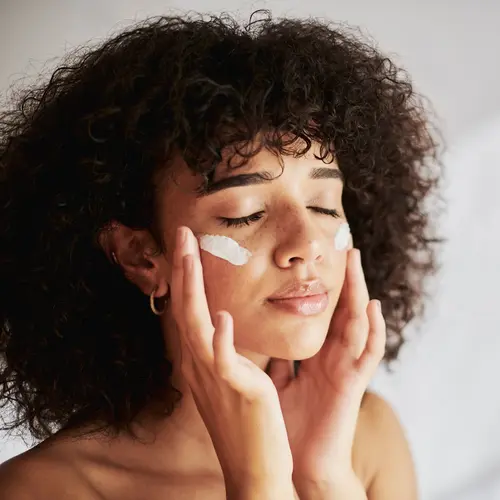What Is DMDM Hydantoin?
DMDM hydantoin is a preservative and antimicrobial agent found in a wide range of cosmetics and skin-care and hair-care products. It's considered a “formaldehyde donor.” That means it releases a small amount of formaldehyde over time to help keep products fresh and free from contaminants.
You can find DMDM hydantoin in:
- Makeups
- Makeup removers
- Shampoos
- Conditioners
- Hair styling products
- Moisturizers
- Liquid hand soaps
- Facial cleansers
- Exfoliants or scrubs
Formaldehyde-releasing preservatives like DMDM hydantoin help keep beauty products from spoiling. While formaldehyde-releasing ingredients can be dangerous in high levels, these chemicals are found naturally in safe, small amounts in many foods. They include:
Our bodies, and those of most other living organisms, also make small amounts of formaldehyde as part of the normal process of metabolism.
Benefits of DMDM Hydantoin
DMDM hydantoin helps your personal-care items stay fresh for long periods. The chemical stops or slows down the growth of potentially harmful fungi, yeast, and bacteria.
Risks and Side Effects of DMDM Hydantoin
Many experts believe this chemical is safe in cosmetic and hygiene items, since they release only small amounts of formaldehyde in normal use. When you shampoo your hair, for example, the level of formaldehyde that's released is about equal to the amount found naturally in a medium-sized pear or apple.
But others suggest that formaldehyde exposure from DMDM hydantoin could have some risks. These might include:
Allergic contact dermatitis. One study found that products with formaldehyde-releasing ingredients could cause allergic contact dermatitis or contact eczema in people allergic to formaldehyde. And the FDA lists DMDM hydantoin as a common allergen in cosmetic products.
You can't tell from a product's label how much formaldehyde it will release. So avoid products with DMDM hydantoin if you know you’re allergic to formaldehyde.
Hair loss. A class action lawsuit is pending against some shampoo companies that use MDMD hydantoin in their products. The suit claims that the chemical may cause hair loss and scalp irritation in some people. But there's been little, if any, research into this effect.
Irritation. For some people, breathing in formaldehyde can irritate their eyes, nose, and throat. But this happens mostly with products that are heated, like certain hair straighteners used in salons.
Cancer. Formaldehyde is considered a probable carcinogen, which means it could cause cancer. But that's a concern only if you’re exposed to the chemical in unusually high quantities for a long time. Experts are still unsure of all the potential long-term health effects of formaldehyde.


